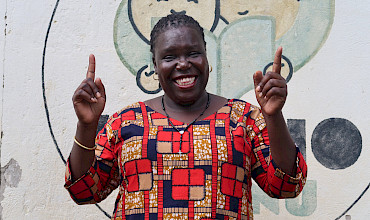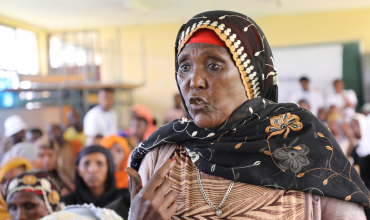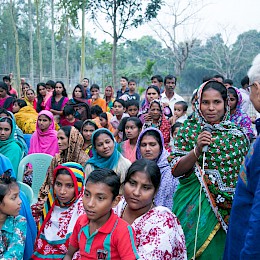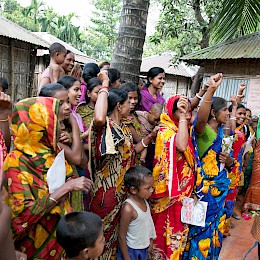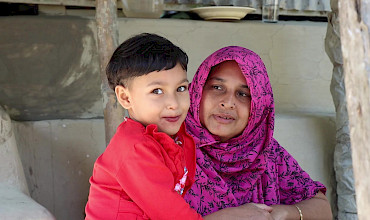
Women's empowerment transcends being just a buzzword; it stands as an indispensable catalyst for societal progress and development, particularly in the journey to gender equality. At Right2Grow, we ardently believe in the transformative power of women's empowerment and its pivotal role in forging a world characterized by equity, inclusivity, and prosperity, where every child can realize their full potential.
As a program dedicated to nutrition advocacy, we are acutely aware of the vital roles that women play as caregivers and providers in many households. To this end, we place women at the heart of our implementation strategy by equipping them with knowledge concerning the first 1000 days of a child's life, balanced dietary practices, food preparation skills, and access to nutritious food options. Furthermore, we actively participate in local, national, and international forums where women's empowerment and gender equality issues are discussed and promoted. When women are empowered to make informed choices about their family's diet, we lay a strong foundation for healthier, more prosperous communities.
In the words of Ms. Nabirye Shaminah from Uganda, one of the women involved in Right2Grow activities, "Previously, I used to stop breastfeeding my children at 3 months due to ignorance about the risks associated with early discontinuation of breastfeeding. After attending dialogues organized by the Right2Grow program, I learnt about the nutritional benefits of breastfeeding during the first 1000 days of a child's life. With this newfound knowledge, I have exclusively breastfed my baby for 6 months and plan to continue for at least 2 years. I have also learnt about the importance of proper child feeding, including essential foods for protein, body building, immune system development, and brain and bone strengthening. Thanks to the Right2Grow program, I have so far educated ten other mothers in my community on breastfeeding and proper child feeding. Our babies are healthy, and we no longer frequent the hospital like before."
While entrenched gender roles in many patriarchal societies place the burden of under-nutrition primarily on women and girls during the initial 1,000 days of a child's life, the lack of equal rights for women and girls hampers their ability to cope with such responsibilities. Additionally, gender-based violence and the denial of sexual and reproductive health rights contribute to malnutrition and unintended early pregnancies. We firmly believe that gender equality cannot be achieved by empowering women alone; it necessitates the inclusion of men.
“Under Right2Grow, we have been able to bring on board the men who have become male champions, supporting women to adequately access health services, make decisions at home on land use and food production, this was a challenge in most of the locations in the past but now it has rapidly changed," states Mr. Gerald Kato, Right2Grow Uganda Country Lead, speaking at the 2023 Women Deliver conference during a side event hosted by Action Against Hunger, titled 'Amidst World Crisis, A Feminist Approach to Gender and Hunger.' He further adds, "the male Champions have not only brought change of behaviour but also inspired other men who have increasingly joined ‘Fathers to Fathers’ support groups to discuss thematic issues like land rights, access and utilization. We also liaise with line ministries to ensure women’s rights are discussed at National and district level during policy and budget making processes in Uganda."
The denial of access to and control over productive and financial resources, coupled with the burden of unrecognized and unpaid care work, deprive women of the necessary resources, time, and energy to provide proper care for their children, perpetuating the inter-generational cycle of under-nutrition. The lack of women's meaningful participation in political decision-making further exacerbates their struggles, as institutionalized discrimination persists.
Right2Grow establishes spaces where rights holders, including women and girls, engage with duty bearers to raise the issues they face. These issues are subsequently considered during planning and policy formulation processes. Placing women at the forefront of nutrition advocacy efforts has not only enhanced nutrition practices and behaviors at the local level but has also improved service delivery and the development of inclusive policies for women at the local and national levels.
It is imperative for all stakeholders to recognize the profound connection between women's empowerment and nutrition. We must commit to providing the requisite support and opportunities for women to thrive as both nurturers and leaders in shaping a healthier, more nourished world for all. By championing women's empowerment, we are sowing the seeds of a brighter, more equitable future.
Back to overview
